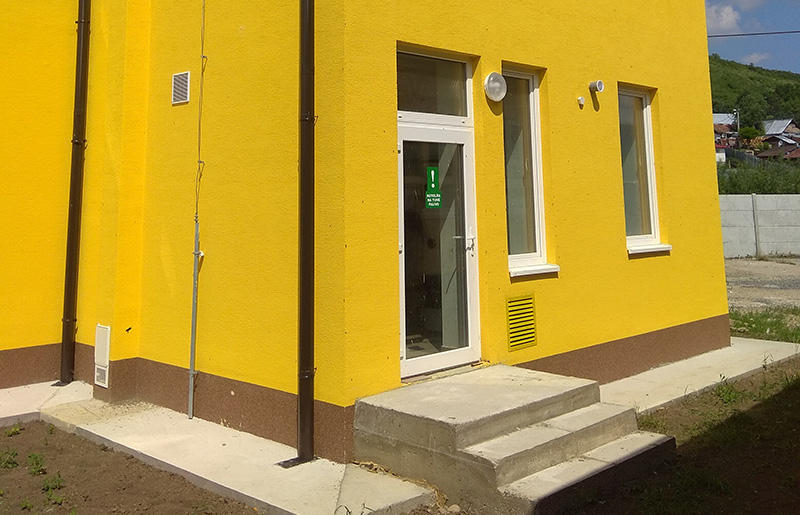EU funding has supported the construction of a new nursery school in the village of Pečovská Nová Ves, a municipality in the district of Sabínov, in east Slovakia’s Prešov region. Located near the village’s existing primary school, the nursery provides preschool education in a safe and accessible environment for 50 children. Approximately 20 of its pupils come from marginalised Roma communities.
New nursery school built in Slovak village of Pečovská Nová Ves helps Romani people
- 19 June 2020
The construction of a new nursery school in Pečovská Nová Ves provides early-childhood education capacity for another 50 children, including 20 from marginalised Roma communities. It is part of an approach to quality education that includes early-childhood education and care.
Prior to the implementation of the project, the early-years educational infrastructure in Pečovská Nová Ves could accommodate 80 children under normal circumstances and up to 99 in exceptional situations. Furthermore, the number of applications for admission was rising with each passing year.
Construction of the nursery has thus been vital to expanding preschool capacity and making it possible to offer a place to every child who needs one. In addition, the project has had a positive social impact by creating two new jobs in the village.
Education for disadvantaged children
Investments and activities aimed at ensuring educational success are an integral part of Slovakia’s policies related to fields including development of human capital, infrastructure and employment. The need to invest in education is particularly pressing with regard to children from ethnic minorities such as the Romani and those from low-income families, for whom centralised provision of state-funded educational programmes is currently limited.
Against this background, establishment of the Pečovská Nová Ves nursery forms part of an approach to raising standards of education which encompasses learning from the earliest years of childhood.
Increasing school readiness
In setting up the facility, the principal intention of the municipal authorities was to improve school readiness and social competences among young children from disadvantaged backgrounds, notably those from the local Romani community.
Most nursery places were occupied by children aged 5-6, whereas preschool education was lacking for children below that age group.
Such a situation was considered unsatisfactory, firstly because it meant that children only had a short time of preparation in nursery before starting school; secondly, because parents of younger children who were economically active and whose work was essential to providing for their families could not access the kind of childcare they needed.
As regards children from Romani families, the benefits of early-years education can be clearly seen in practice. Those who attend preschool facilities come into contact with others from the wider society on a daily basis; their parents take a strong interest in their attainment; and once they begin primary school, they have few or no learning or behavioural problems.
Total investment and EU funding
Total investment for the project “Construction of a kindergarten in Pečovská Nová Ves” is EUR 324 628 with the EU’s European Regional Development Fund contributing EUR 275 934 through the “Human Resources” Operational Programme for the 2014-2020 programming period. The investment falls under the priority “Marginalised Roma communities”. The investment falls under the priority “Social inclusion”.

